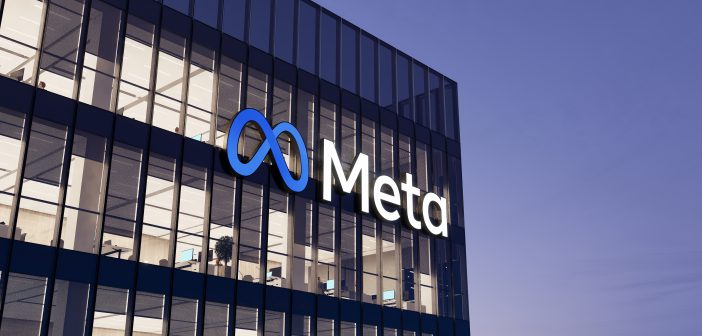A small tech company called META sued the former Facebook last month alleging the social media company violated its intellectual property rights with a name change.
The lawsuit, filed by the Pryor Cashman law firm in the Southern District of New York on July 9, alleges that when Mark Zuckerberg announced Facebook’s name change to Meta Platforms on Oct. 28, it caused irreparable injury to META’s brand and business.
“Facebook ruthlessly moved forward with its rebranding and devoured other smaller players’ trademark rights and businesses,” wrote plaintiff attorney Dyan Finguerra-DuCharme in the July 19 complaint. “Facebook engaged in this egregious conduct despite its executives having significant and intricate knowledge of META, and the goods and services that META offers in the Industry under the META Mark.”
META seeks an award of treble damages as well as Facebook’s profits for acts of trademark infringement and unfair competition.
“Facebook violated META’s right to use a sign distinguishing its goods and services from its competitors,” said Eleni Melekou, attorney with Pardalis Novahicka in New York. “Facebook used the identical mark of the same services and products. META likely will show consumer confusion and prevail on its trademark infringement claim.”
However, litigation could be hindered by the delay in time in which the legal action was filed, according to Ms. Melekou. META could have initiated litigation within a month of the name change but instead, META waited nearly nine months before it filed suit.
“Since META waited for so long, Facebook could allege that there was an implied or naked license,” she said. “In general, trademark licenses may be inferred, which will be determined in the course of litigation.”
Neither Facebook, renamed Meta Platforms, nor META responded to requests for comment.
The lawsuit comes at a time when Kentucky Congressman Thomas Massie (R) and Delaware Senator Chris Coons (D) have introduced legislation that, if approved, would restore the U.S. patent system to what the founding fathers encapsulated in the U.S. Constitution before the America Invents Act (AIA) reformed it in 2011.
Copyright and patent law emanates from Article I of the U.S. Constitution, which grants Congress the authority to promote the progress of science and useful arts by securing for limited times to authors and inventors the exclusive right to their respective writings and discoveries.
“The unintended consequences that have emerged as a result of the 2011 law are that it wound up hurting the little inventor,” said Jenny Beth Martin, executive producer of the documentary “Innovation Race: There is No Prize for Second Place.”
Although the AIA was packaged as historic legislation that would quicken the patent process for American entrepreneurs and businesses, it has also invalidated patents through the implementation of the Patent Trial and Appeal Board (PTAB).
“It’s a tribunal that has replaced going to court to defend your patent, which is the normal path that we’re used to,” Ms. Martin told PacerMonitor News. “The more cynical view might be to say that larger companies that are okay with infringing on patent rights may have been influencing government to make the laws more friendly to them, so they do not have to pay for the patent rights that others have.”
To avoid the PTAB, inventors and entrepreneurs who would normally rely on the U.S. patent system are employing trade secret protection instead. However, trade secret law is not as protective as patent law.
“It’s very difficult to protect yourself particularly if you’re going against a large corporation,” said USAF Retired Brig. Gen. Robert Spalding, CEO of SEMPRE, a tech company, and author of Stealth War.
In addition, trade secret law has its limitations.
“Not every trade secret can be patented,” Ms. Melekou told PacerMonitor News. “A patent is a new way of doing something or an invention that solves a problem. A trade secret is a piece of valuable business or technological information. In general, a trade secret is a broad category of information and know-how that could not be protected as a patent.”
AIA advocates argue that the law harmonizes U.S. patent law with the laws of other nations by changing U.S. law from ‘first to invent’ to ‘first to file.’
“The AIA was signed into law to improve the process of examination of U.S. patent applications by making the process shorter and more efficient,” Ms. Melekou added. “The slow examination delayed the commercial progress and impeded companies like META from securing its intellectual property rights and enjoying federal protection.”
But while U.S. patent law is adapting itself to foreign patent systems, competitors like China have replicated the original American patent system and gained access to American investment capital in the process, according to Mr. Spalding.
“The intellectual property system as codified in the U.S. Constitution says that an inventor owns their rights for some amount of time,” he added. “That’s one factor which enabled the rise of innovation in America. So, if you want investment in technology here in the United States and not have it go to China, we need to strengthen the intellectual property system, which would require unwinding the America Invents Act.”






